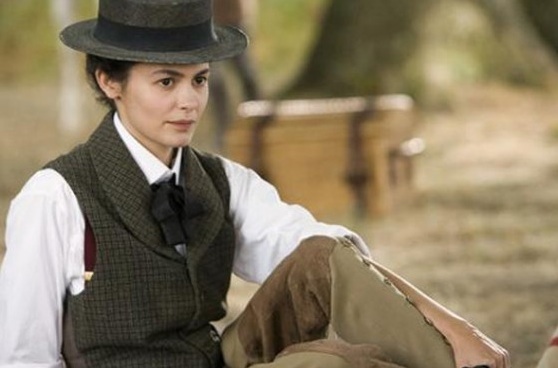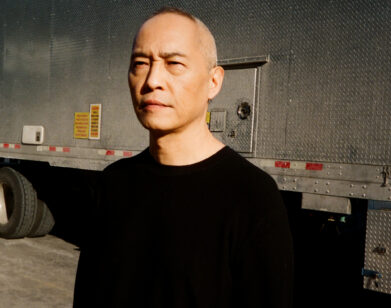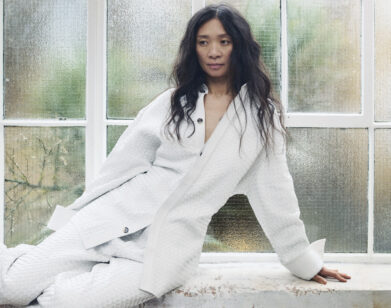Audrey After Chanel

If beauty is clarity, then Audrey Tautou might be our Helen of Troy. Her face–especially her dark, cartoonishly clear eyes–seems to register in finer focus than the rest of the world, and seeing her in person is like putting on reading glasses for the first time. It’s obvious why Jean-Pierre Jeunet’s camera stayed adoringly glued to her in Amélie. (PHOTO: TAUTOU IN COCO BEFORE CHANEL)
As you’ve probably heard, Tautou’s latest role is much less winsome. In Coco Before Chanel, which was released today, she plays the iconic French designer, who was the opposite of transparent. Born in southern France, she grew up an orphan. Affairs with two men of means, both of which are explored in Anne Fontaine’s film, helped her realize her gift for fashion design and close in on Paris. But unlike, say, Edith Piaf, the subject of the last big French biopic, La Vie en Rose, Chanel never opened up about her humble roots, no matter how successful she became. She even bought her brother a house to keep him out of her life. Tautou explained: “I don’t really understand why she would work so hard to hide her past, because I don’t think there’s really a reason to be ashamed.”
Tautou only knew the basic outline of that past before she accepted the role (which she took, incidentally, before becoming the face of Chanel No. 5). “I knew what an icon she was, and that she had created a new style, and how elegant and strong and severe and authoritative [she was]. But, you know, I thought that she was coming from the high bourgeoisie and that everything had been easy,” she admitted.
In reality, it was anything but. Chanel, who strived to be her own boss but needed male benefactors to advance, had a modern sensibility in a pre-feminist era; most her creative work she does in the film involves streamlining the ridiculously flouncy hats and dresses of the belle époque. As delighted as they were with the results, her clients still looked at her funny.
Chanel wore pants long before it was cool for women to do so and, although Tautou looks as severe as she ever has for a good deal of the film, she captures her mix of instinct and discipline with a hint of Amélie playfulness.
“She was not cold in that she was flat, with no emotion. When you see her interviews, she was very, very expressive,” Tautou said. “She was almost like a clown. And when you see pictures of her when she was young, she’s making faces. I think she was–the word in French, it’s pudique. It’s for people who have pain or trouble to say that they love somebody, or that they suffer. They just keep it inside. She was like that.”
Maybe bottling all that up helped Chanel be ahead of her time. In any case, Tautou said neither are qualities she shares with her character. “Me, I’m not modern at all. Maybe a bit more sauvage. Parisian show business is not my cup of tea. But she created the masculine-feminine style, and I think that’s something I share with her. I’m not a girlie-girlie.”






